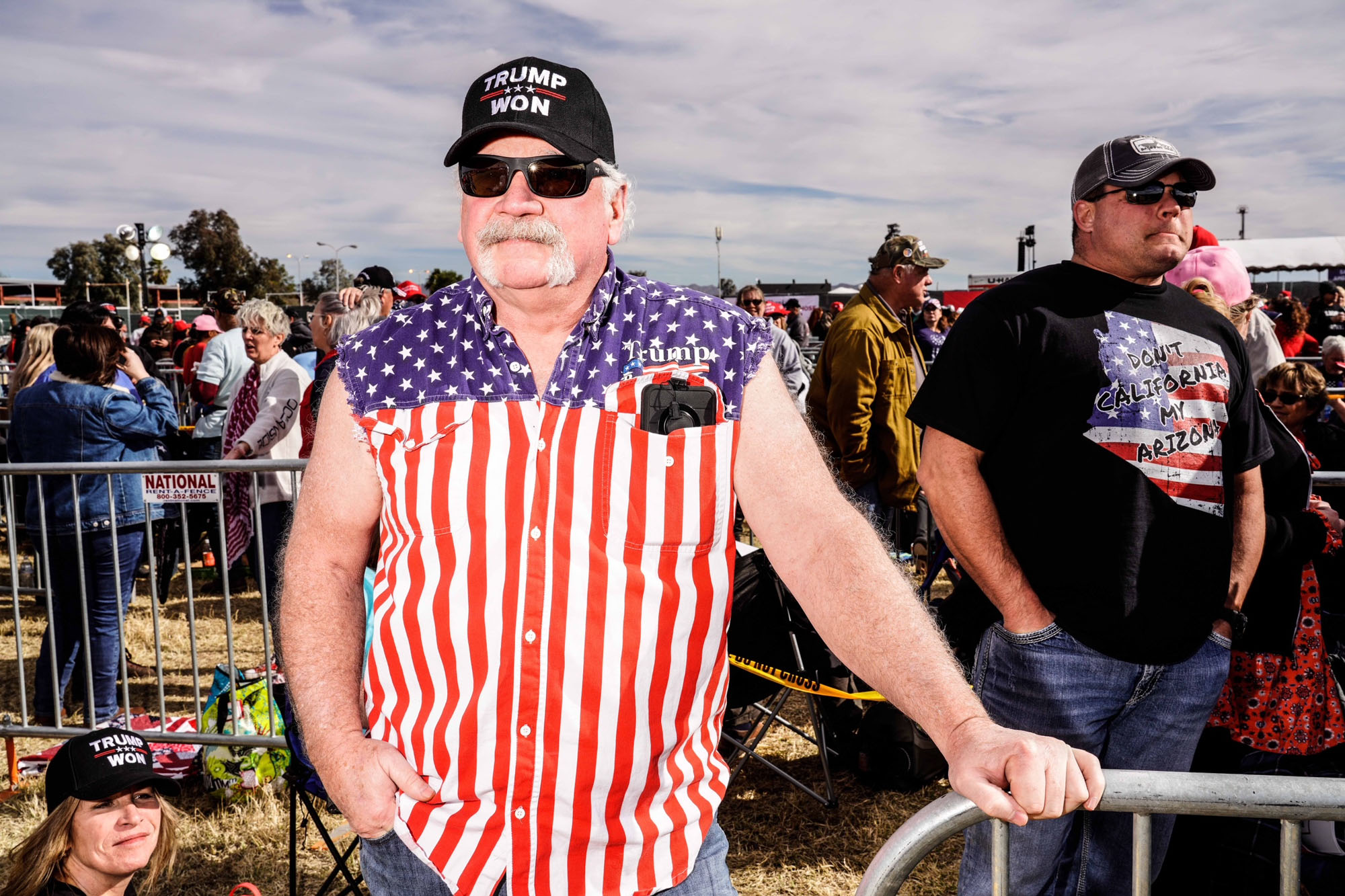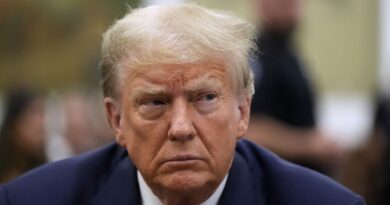Trump superfans dream of a run again, and of JFK Jr. on the ticket

If Kallatsa was worried about sounding too conspiratorial, he shouldn’t have been. He was not alone among the crowd in believing that JFK Jr. is not only still alive but is also a secret Trump supporter embedded far in the “deep state.” One attendee was spotted wearing a red shirt with the faces of Trump, Kennedy and Kennedy Jr. in the crowd. Michael Protzman, the QAnon influencer who organized the event last year in Dallas’ Dealey Plaza where he and others also believed John F. Kennedy and John F. Kennedy Jr. would reappear from the dead, was spotted in the rally stands.
Elsewhere were individuals in hats that read “Trump Won” and buttons with “Q.” Figures from fringe QAnon online groups, like Jim and Ron Watkins, shared their visit to the rally with online followers. And conservative activist Ali Alexander — who helped organize last year’s Jan. 6 “Stop the Steal” rally, which has led to countless arrests and fears about the erosion of American democracy — was given priority access to the event.
One of the introductory speakers, Rep. Paul Gosar (R-Ariz.), who represents the district that includes Florence, invoked a “storm coming” — a phrase used by QAnon — in his speech. Another speaker was Arizona state Rep. Mark Finchem, who is running to be Arizona’s secretary of state, has been linked to QAnon and has reportedly discussed conspiracies about a network of elected officials involved in a network of pedophilia. Both have been endorsed by Trump.
Trump has always had one foot firmly in the camp with conspiracists on the right, starting with his promotion of birtherism during the Obama years. Having been ousted from power, he has continued to adopt and amplify this world and its views, effectively solidifying it as the base of the Republican Party. Figures once relegated to corners of the internet and the fringes of the party have been welcomed with open arms at Trump rallies and found some of their theories shared by the former president himself.
Up on stage Saturday night, Trump pushed a right-wing conspiracy suggesting that some of the people who attacked the U.S. Capitol on Jan. 6 were actually FBI informants.
“Exactly how many of those present at the Capitol complex on January 6 were FBI confidential informants agents or otherwise working directly or indirectly with an agency of the United States government? People want to hear this,” Trump said.
Days earlier, the congressional committee investigating the capital attacks said it had interviewed Ray Epps, the Arizona man central to the theory that the FBI was secretly involved in the riots. Epps, the select committee said, had informed investigators “that he was not employed by, working with or acting at the direction of any law enforcement agency on Jan. 5 or 6 or at any other time, and that he has never been an informant for the F.B.I. or any other law enforcement agency.”
But that did not stop the former president, who, following the footsteps of allies like Rep. Matt Gaetz (R-Fla.) and Sen. Ted Cruz, (R-Texas), as well as Fox News host Tucker Carlson, suggested Epps was part of a “false flag” operation. “How about the one guy, ‘Go in, get in there everybody.’ Epps,” Trump declared.
It was one of several lines from Trump in which he asked his followers to dismiss the evidence in front of them. Elsewhere, he continued to argue that his election loss was the result of an elaborate effort to cheat by Democrats.

